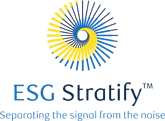SEC adopts amendments to the Fund "Names Rule"
On September 20, 2023, the SEC voted to expand the scope of the current “Names Rule,” stating that if a fund’s name suggests a focus on a particular type of investment, then at least 80% of its AUM most be in the type of investment suggested by its name. The amendments also require enhanced disclosures in a fund’s prospectus, and specify the timeframe that the fund must return to compliance if there is a temporary departure.
The SEC was clear to establish that the amendments are not meant to coalesce the market around one singular definition of a term. It also acknowledged that there can be multiple, reasonable definitions of the same term. Ultimately, the SEC seems to be allowing funds flexibility to define the terms used in their name, but funds will need to be transparent on how they are defining terms in their prospectus.
California set to pass climate disclosure bills
California legislators have leapfrogged federal regulators by introducing two greenhouse gas (GHG) emissions disclosure bills that may serve as a catalyst for climate-related disclosures in the U.S. The California bills take emissions disclosure a step further than the federal proposal, because the SEC rules only apply to publicly-traded companies and only requires companies to disclose Scope 3 emissions if material.
If signed by California Governor Gavin Newsom (which he has indicated he will), the first bill, (SB-253) would be the first U.S. measure to require public and private companies operating in California and earning at least $1 billion to disclose their direct and indirect GHG emissions, beginning in 2026. The companies would also need to disclose material GHG emissions generated by their suppliers and partners starting in 2027.
A second bill (SB-261) would also require California-based companies, that earn at least $500 million, to prepare a climate-related financial risk report in accordance with the Task Force on Climate-Related Financial Disclosures (TCFD) framework.
Russell 2500 companies lag in emissions disclosure
Although most S&P 500 companies voluntarily report on Scope 1 & 2 climate-related risks and provide at least some data on Scope 3 emissions categories, far fewer Russell 2500 companies disclose any emissions data.
Scope 3 disclosures, which are viewed as more controversial than Scope 1 & 2 due to their measurement complexities, represent about 80% of total GHG emissions for any given S&P 500 subsector. The Utilities, Commercial & Professional Services and Transportation sectors are the only groups where Scope 3 represents less than half of total GHG emissions.
EU Commission seeking feedback on SDFR framework
The European Commission (EU) continues to make headway on its efforts to improve sustainability disclosure requirements. It is currently seeking feedback on The Sustainable Finance Disclosure Regulation (SFDR) through both stakeholder and public consultations. The targeted consultations,—which will be open until December 15, 2023, will gather information on:
- The framework effectiveness
- The costs of SDFR compliance
- Whether disclosure requirements should be imposed for all financial products regardless of sustainability-related claims, and
- Whether more precise product categorizations are needed (either building on existing Article 8/9 concepts or taking a different approach, i.e., categorizing by investment strategy).
Investors support heightened transparency of ESG ratings
Our review of comments received from the EU consultation on proposed regulation of ESG ratings providers, revealed that investors seem generally supportive of increased transparency and pricing fairness. However, many investors believe that the regulation scope should also be extended to ESG data providers, who face similar challenges to transparency.
ESG ratings providers are looking for more clarity on the definition of “ESG rating” and cited concerns on the cost-based fee requirements, transparency requirements, conflict of interest requirements, and the implementation timeline, as well as ensuring global interoperability.
Our Commitment to ESG
ESG Stratify™ encompasses all of RBC Capital Markets’ ESG thought leadership and insights, including our monthly ESG Scoop series and industry-specific publications from our research analysts. RBC’s Equity Research Group delivers thorough, comprehensive assessments of companies spanning all major sectors, along with macro insights and stock-specific ideas to help guide portfolio management decisions.

Sara Mahaffy authored “The ESG Scoop Regulatory Watch – California Climate Bills, SEC Names Rule, SFDR Review & More” published on September 18, 2023. For more information about the full report, please contact your RBC representative.
